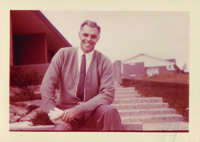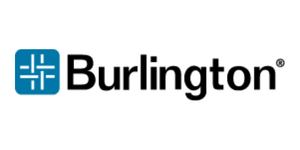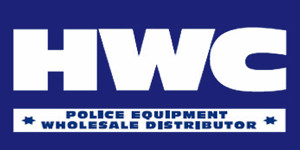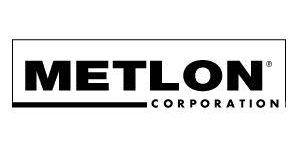|
Firm mourns loss of founder, Dave Hindlemann This year marks a major milestone for Custom Uniform Co. With 70 years of history, it has grown and adapted to meet the needs of the changing uniform apparel market. It now will start its eighth decade under new leadership after the passing of its founder in late 2006. Deb Webster now steps in as owner and manger after Dave Hindlemanns, Websters father, passing in November. Webster has learned from Hindlemanns legacy the key business ideals of flexibility and savvy that he held in such importance. Webster remembers working with her father as early as age 5, sorting thread and designing her own fashions from remnants and scraps. Hindlemann started his first company, Pioneer Wholesale Tailors, in 1936. He had always had the entrepreneurial spirit, managing three paper routes at age 10 and working hard to purchase his first bike for $10 and later his first roadster for $50. His father was a contractor in the garment business, but he moved the family out West when the crash on Wall Street meant financial hardship for his customers and ultimately the end of his company. The elder Hindlemann began working for a small Denver-based clothing factory, and the son soon followed after earning an apprenticeship there. The younger Hindlemann even sacrificed a full-ride scholarship at Syracuse University to help provide for his extended family during the Depression. Ive never regretted owning my own business, Hindlemann said. I never go to sleep at night worrying that the next morning some executive will tell me my job has been abolished. He was able to provide that security for his employees as well. He built the company steadily, changing the name to Bell Tailors and later Bell Manufacturing Co. when garment construction became the base of the business. What began with a handful of tailors had grown to 50 or 60 sewing professionals. For many years, it was one of the best-known local suiting stores, and when World War II came, it was requisitioned by the U.S. government to manufacture military uniforms. Subsequently, Hindlemann was commissioned by the Allied Forces to go to Germany, where he was put in charge of the garment factories that made clothing for the newly released concentration camp prisoners. He joked that the garments were made in two sizes: too big and too small. Hindlemann himself had served in Europe under Gen. George S. Patton and earned two bronze stars, an oak leaf cluster and letters of commendation for his bravery in battle. When 1946 came, the soldiers returned home not to pinstripe suits, but to open-collar shirts, slacks and sport-coats. Custom tailoring for the masses had become a thing of the past. So Hindlemann steered his company in a new direction. He adapted the wartime uniforms his company had made to uniforms for marching bands, parochial schools and ceremonial groups. His firm became one of the larger band uniform houses in the country as he converted from the cost-prohibitive woolens to the new technology of synthetics. Well ahead of his time, Hindlemann allowed many of his employees to work from home as contractors, allowing more flexibility so he could attract the most talented sewers. Knowing that his business would succeed him, he felt that his greatest impact had been the production of a quality product. By establishing a trusted brand, he was building the base for a company that could last for future generations. Weve always had very conscientious quality control, he said. Delivering a good product to the customer, learning as much as I can about things as I go: that matters to me. I like to learn from people, ideas and products. He had an engineers mind, and he used it to manufacture garments for more than 70 years by drafting patterns and creating high-quality garments. He helped to set the standards for mens suiting, for the military and for band uniforms that are still maintained today. As one colleague said of him, Dave has forgotten more than most people knew in the first place. In 1981, he turned 65 and gave up the high overhead and stresses of operating a large factory, downsizing to a smaller shop and staff. The company in its new form is called Custom Uniform Company, again modifying as budgets for band uniforms got smaller and society changed focus. Today, after 23 years in partnership with his daughter, the smaller business is more challenging than ever. She is the fourth generation of the Hindlemann family to work in the apparel industry. All styles of custom-designed garments are manufactured for national distribution, both as fully constructed garments under the Custom Uniform Co. label and as private-label and cut-and-sew items. The company makes uniform apparel for the restaurant, hotel, housekeeping, and corporate industries, and it also boasts numerous volunteer and service organizations among its customers. Inventory also includes ready-to-wear garments when a customer desires a more generic item. Hindlemann would say, I like being a big fish in a small pond. We can make small quantities, lots of different things. Its fun. Having fun is more important than making the most money. If you dont enjoy coming to work every day, youll never be a success at what you do. He enjoyed what he did so much that he continued working full time until his death at age 90. Websters leadership will take Custom Uniform Co. into its 72nd year and beyond. The owner may have changed, but the company will continue to be known for its highest-quality products and personal service that have endured for the past seven decades. |
|
| Above story first appeared in MADE TO MEASURE Magazine, Spring & Summer 2007 issue. All rights reserved. Photos appear by special permission. | |
| Halper Publishing Company 633 Skokie Blvd, #490 Northbrook, IL 60062 (877) 415-3300 Fax (224) 406-8850 [email protected] |
|











